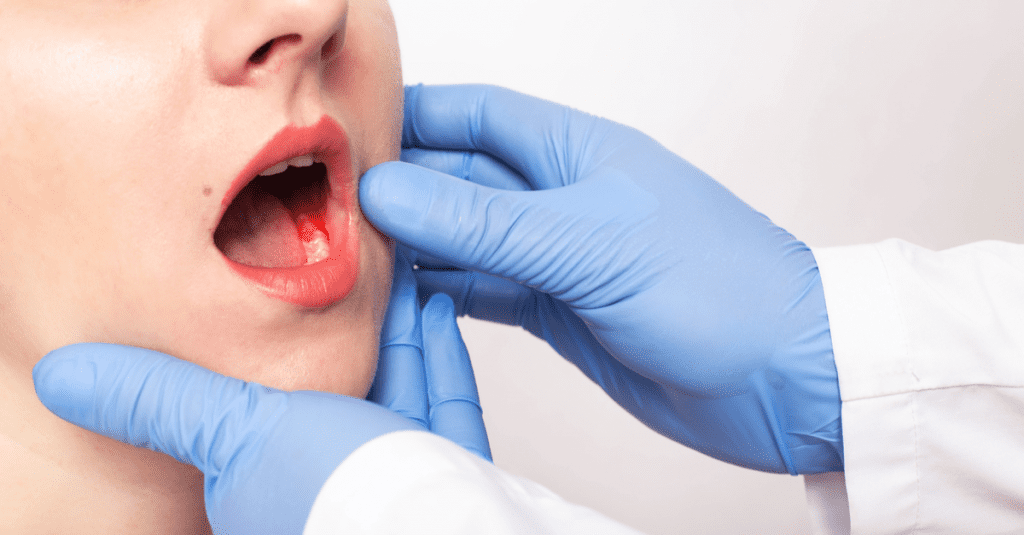Root Canal Treatment
Read our comprehensive guide to understand what is involved with root canal treatment
Our comprehensive Root Canal
Therapy guide
Root canal treatment isn’t something that people eagerly sign up for. No doubt you’ve heard some horror stories about how painful this procedure can be. But it doesn’t have to hurt – especially if we numb the entire area. Let us settle your nerves by giving you information about what to expect from root canal therapy (and why you might need it in the first place).
Table of Contents
What is Root Canal Treatment?
Root canal treatment (RCT) is a dental procedure that saves “dead” or “dying” teeth by removing infected pulp – the connective tissue at the centre of the tooth. A sterile filling replaces the damaged pulp.
This endodontic treatment gets rid of all infection and pain associated with a condition called irreversible pulpitis.
What is pulpitis and how does it occur?
Pulpitis occurs when bacteria from a hole or crack in the enamel spreads to the pulp of the tooth (or multiple teeth) – causing pain and inflammation. This condition can be prevented with good oral hygiene, but dental treatment is required once the infection takes hold.
There are two forms of pulpitis:
Reversible pulpitis: inflammation is mild, so the pulp can be saved with early dental intervention.
Irreversible pulpitis:the pulp cannot be saved and must be removed, as inflammation is too severe and cannot be reversed.

Why would I need root canal therapy (RCT)?
Patients with irreversible pulpitis often need a root canal – as there’s no other way to save their tooth.
The pulp is so damaged, it’s unable to supply blood and nutrients to the tooth, or protect it from decay.
Left untreated, infected pulp tissue may lead to severe pain, bone loss and tooth loss.
If nothing is done to stop the infection, it could spread to other parts of the body and cause fever or blood poisoning. There may even be a modest link between pulpal inflammation and chronic heart disease.
This isn’t too surprising – given that research suggests that people with untreated dental infection are more likely to develop illnesses such as diabetes and stroke.
Endodontic therapy helps to restore the health of the tooth, so it doesn’t need to be extracted. It has a good track record too: most people (90 per cent) can expect their tooth to function normally after the treatment – and permanently too, as long as they look after their oral health.
Signs of pulp tissue damage (pulpitis symptoms)
You may need root canal therapy if you experience the following symptoms:
- Severe pain in the tooth, especially when eating
- Tooth looks darker
- Lingering sensitivity to hot or cold food and beverages
- Tender gums
- Swollen gums
- Hole in the tooth
- Blemish on the gums that doesn’t go away
- Facial swelling
- Neck swelling
- Chipped or cracked tooth
- Tooth is looser
- Pus near the infected tooth
Please be aware that pulpitis symptoms aren’t always obvious, but the tooth pulp may still be damaged. Special tests or x-rays can show if this is the case. Your dentist will give you a thorough examination and let you know if you need endodontic treatment.
What does root canal therapy involve?
A root canal treatment is usually completed in one session that lasts for around an hour and a half – but it can take up to two visits.
Any trained dentist can do this procedure, but they may refer complex cases to an Endodontist – as this is their speciality. At Mona Vale Dental, we can refer you to a local Endodontist if your root canals are very curved, thin or hard to access.
Do root canals hurt?
Root canal treatment generally isn’t painful these days.
Traditionally, root canal procedures have a reputation for being painful. However, this pain is usually from the inflammation (the reason patients need endodontic therapy in the first place).
Despite this inflammation, there’s little to no pain or discomfort if your dentist numbs the entire area using local anaesthetic. It’s not too different from getting a large filling!
Are there any alternatives to RCT?
Yes, it’s possible to have your entire tooth removed instead. This means you may require an implant or bridge to fill the gap that’s left. Ask your dentist about the best option for you.
Keep in mind:
A root canal is generally less expensive than getting your tooth extracted, as the tooth doesn’t need to be replaced with a bridge or implant.Root canal treatment has been shown to have similar longevity to getting a bridge or implant, so it’s a good long-term solution.
Average cost of root canal treatment in Australia
This depends on how many teeth are infected, and the complexity of your case.
The price might be slightly elevated if the infected tooth is a molar – as they’re usually harder to treat because of their positioning at the back of the mouth.
Average cost of root canal: $1,000 to 1,800
Is root canal therapy covered by health insurance?
Private health insurers may reimburse some of the costs – if you have comprehensive extras. This amount depends on your policy; we can give you the item number so you can check with your provider.
Complications during root canal therapy
The vast majority of treatments are successful the first time, however in rare cases; another treatment may be required to eliminate any diseased canal offshoots that weren’t detected.
If you’re experiencing these symptoms weeks after the treatment, it’s likely the infection hasn’t been completely removed:
If you’re experiencing these symptoms weeks after the treatment, it’s likely the infection hasn’t been completely removed:
- Lingering Tooth Pain
- Facial Swelling
- Darkening of the Treated Tooth
- Tiny bumps on the gum
It’s also possible that a tooth that has been successfully treated with RCT may eventually lose some of its colour – due to removal of the pulp. If this occurs, your dentist will talk to you about suitable cosmetic procedures.
Endodontic therapy aftercare
How long should pain last after root canal treatment?
It doesn’t take long to recover after endodontic therapy – only a few days before you’re feeling like yourself again.
This is what you can expect for two to three days after your treatment:
- Slight inflammation
- Mild discomfort or pain
Thankfully there’s a quick and easy fix: over-the-counter pain medication and a warm, saltwater rinse.
How long before I return to school or work?
You’ll feel a bit numb for a few hours after the treatment, but other than that, there shouldn’t be any problems with going to work or school that very day (some people prefer to take the day off and relax at home though).
What can I eat and drink after the procedure?
The best foods are soft and cold, such as: bananas, pears, peaches, smoothies, yoghurt, eggs and ice cream. Don’t be too hasty though, wait an hour or two until the mouth numbness eases – so you don’t accidentally chomp on your tongue or cheek.
Try to avoid consuming products that are crunchy, hard or chewy during the few days after your treatment.And don’t apply pressure to the area that’s been treated when you eat – chew with the other side of your mouth instead.
Should I brush my teeth after the procedure?
Yes, you can gently brush your teeth (including the treated tooth) – but avoid flossing the area if a temporary filling has been placed inside your tooth as a placeholder until your next visit to the dentist.
How to avoid needing a root canal in the first place
Prevention is always the best cure, and this can be achieved by taking care of your oral health to keep infection away.
Good oral hygiene:
Only 50 per cent of all Australians brush their teeth twice a day (morning and night) – which is what the Australian Dental Association recommends. It’s best to use a fluoridated toothpaste, and don’t forget to gently brush the gum line too. This should take at least two minutes, every time.
And floss at least once a day, to remove any loose particles.
Consume less sugar:
Harmful oral bacteria called Streptococcus thrive when there’s plenty of sugar to feast on – so don’t give this bug too much of what it wants. If you enjoy sweet foods and drinks from time to time, clean your teeth properly after.
Give up smoking:
This study shows that smokers are 70 per cent more likely to need root canal treatment than people who don’t smoke. If you’re a smoker who’s thinking about quitting, here are some resources that may help.
Visit your dentist at least once a year:
It’s important to have regular check-ups at your dentist – to catch early warning signs, and clean stubborn plaque from areas that are difficult to reach with a toothbrush.
And if your children are aged between two and 17, your family may be eligible to receive up to $1000 to cover their basic dental services over a two year period (Child Dental Benefits Schedule).
At Mona Vale Dental, we use complete anaesthesia on all root canal treatments – to ensure you feel no pain. It’s important to us that you feel safe and comfortable the entire time.
Contact us on (02) 9997 1100 to book an appointment or find out more.

